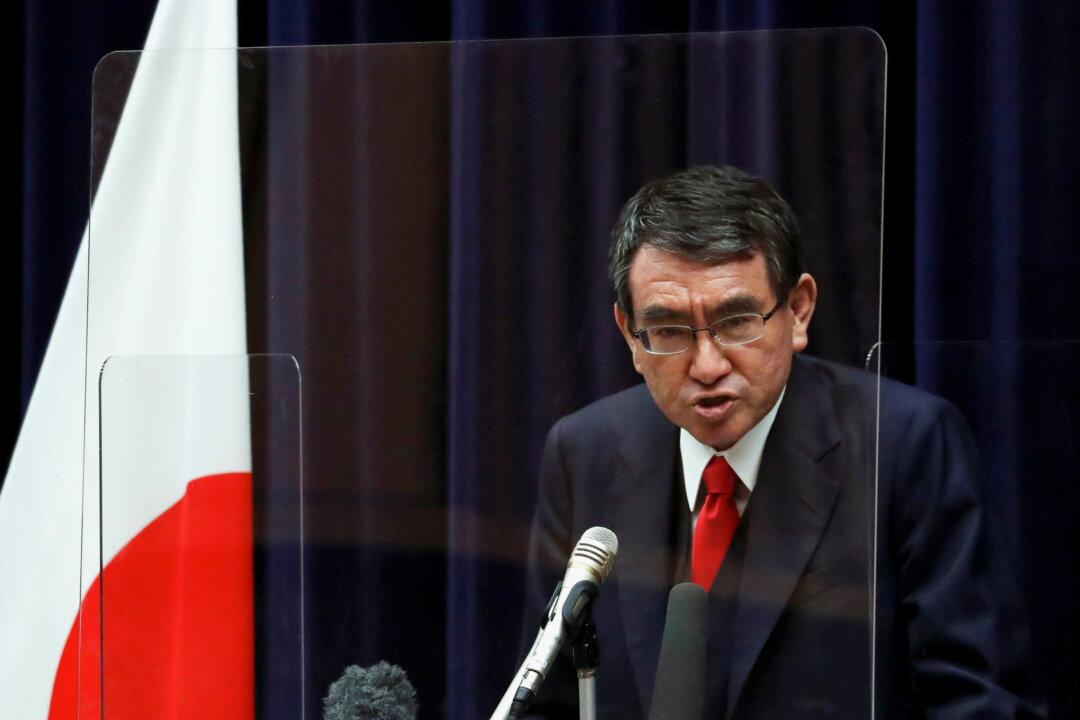TOKYO—Japanese COVID-19 vaccine minister Taro Kono’s chances of becoming the next leader of the ruling party, and subsequently prime minister, were boosted on Tuesday when a rival’s party faction splintered.
Japan’s Liberal Democratic Party (LDP) will hold a leadership election on Sept. 29, after Prime Minister Yoshihide Suga announced last Friday he was stepping down. The winner of the vote is all but assured to be Japan’s next prime minister.





